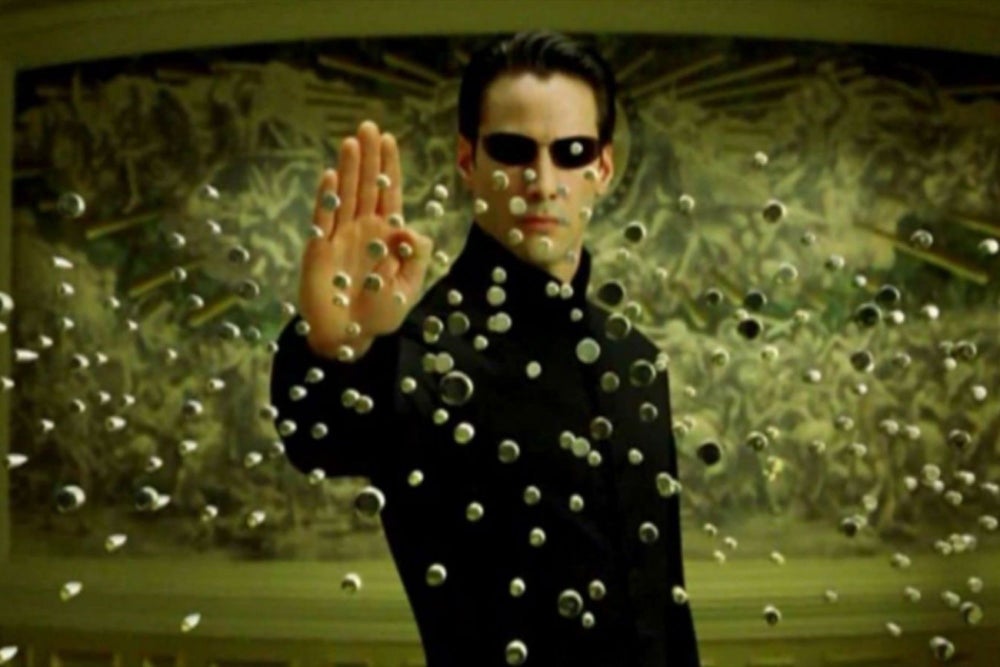February 18, 2021 6 min read
Opinions expressed by Entrepreneur contributors are their own.

Is it possible that, like Skynet in the Terminator movie, the machines become aware of themselves and wage a war against humans to exterminate them? Should we fear artificial intelligence or is it just a myth?
There are many science fiction movies and novels that have shown us artificial intelligence as a threat to humanity, and the Terminator is one of those stories that presents us with an apocalyptic panorama.
In 1984, director James Cameron brought to the big screen a film whose main antagonist is Skynet, a supercomputer programmed to exterminate humanity.
In the film starring Arnold Schwarzenegger, Skynet is the artificial intelligence that leads the army of machines, which has the objective of attacking civilization and making it disappear. It becomes aware of itself and controls the military arsenal of the United States, with total independence from humans.
The truth is that the cinema has been showing us this type of plot for decades; in which super-intelligent computers are capable of relating to men, putting themselves at their service, as well as devising evil plans to annihilate them.
Another cinematographic example is The Matrix , a story released in 1999 that starts from a premise very similar to that of Terminator : once they acquire self-awareness, the machines rebel against their creator, declare war on them and end up defeating them. One more feature film, in which we are once again spectators of a virtual world created by machines to control humanity.
But do we really need to fear artificial intelligence?

Image: The Matrix | Warner Bros.
The hypotheses and ideas embodied in automation go back centuries, from Leonardo Da Vinci’s automata and the fantastic stories of Jules Verne , who confessed not having been particularly proud of “having written about the automobile, the submarine, the airship, before that they were in the domain of scientific realities. “ The father of science fiction expressed that when he spoke of these issues in his books as something real, they were already half-invented.
And it is that for many years human beings have presented different theories about how far the new frontiers of knowledge can take us and to what extent we can progress.
Another example was Nikola Tesla , considered the inventor of modernity and the greatest geek in history, who also had a very futuristic worldview.
In 1926, during an interview , he confidently predicted that: “When the wireless technique is perfectly applied, the whole earth will become one huge brain – indeed, it is – and all things will be particles of a genuine whole. and rhythmic. We will be able to communicate with each other instantly, regardless of distance. Not only this, but through television and telephony we can see and hear each other as perfectly as if we were face to face, despite the fact that the distances they measure are thousands of kilometers … “
The truth is that, until today, it is very difficult to know exactly what our relationship will be with each technological development, so the debate continues between theorists and highly prestigious figures within the industry.
One who warns of a possible negative role for artificial intelligence in the future is Elon Musk, CEO of SpaceX and Tesla.
“Artificial intelligence threatens the existence of our civilization. I think that in general people underestimate the ability of Artificial Intelligence, they think it is an intelligent human being. But it will be much more than that. It will be much smarter than the smartest human, “Musk said at the AI World Conference in Shanghai, China , in 2019.
Like Musk, there are other theorists who point out that in 15 or 25 years machines will surpass the human intellect and can be perfected quickly without human intervention.
However, there are many technological specialists who distance themselves from the apocalyptic idea of considering artificial intelligence as a threat. Several of them argue that the mathematical algorithms that make it possible for a robot to act autonomously are generally not created to destroy or to wage war, but to make life easier for people .
One of the figures that supports this idea is Jeff Bezos , creator and CEO of Amazon . He is convinced that “the development of artificial intelligence is experiencing an incredible renaissance, and is beginning to solve problems that previously seemed like science fiction,” according to what was published on CNBC . For Bezos, robots and automation will give people a better quality of work life, new opportunities and will mean an improvement in global wealth.
And is that robots already exist and coexist with us for a long time, and, to this day, they do not resemble Skynet at all.
Companies that develop artificial intelligence have the responsibility of creating a technology that, in addition to learning and adapting, aspire to improve the quality of life of human beings.
Ideally, consider a world like the one shown in the end of the Mortal Kombat 11 video game. When the Terminator, being a machine, observes that they begin to take over the world, he understands that it is necessary to build a future in which machines and humans do not fight, but where they cooperate, coexist and learn to live in harmony.
As researcher Ana Valdivia says , we must demystify artificial intelligence and stop seeing it as a threat.








